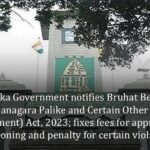Very soon, Public Companies will not require the Central Government’s approval to hike salaries of their top executives.
In a recent notification dated September 12, 2018, the Ministry of Corporate Affairs has, proposed to bring about amendments to the Companies (Appointment and Remuneration of Managerial Personnel) Rules 2014 (“Rules”).
This amendment is yet to be notified in the Official Gazette.
The Rules have been proposed to be amended in view of keeping in sync with the proposal to amend Section 67 ( relating to Section 197 of CA, 2013) of the Companies (Amendment) Act, 2017 Section 197 covers the requirement to seek approval of the Central Government while authorizing the payment of remuneration to the top managerial personnel’s in excess of 11% of the net profits of the company. As per the Companies Amendment Act, 2017 this requirement to obtain the Central Government’s approval is being proposed to be omitted.
As a consequence of this omission the following amendments have been proposed to the Rules:
| Law Prior to Amendment | Proposed Amendment | Implication |
| Rule 6 – Application to the Central Government
The Central Government or the company shall have regard to the following matters, namely:- (1) the Financial and operating performance of the company during the three preceding financial years. (2) the relationship between remuneration and performance. (3) the principle of proportionality of remuneration within the company, ideally by a rating methodology which compares the remuneration of directors to that of other directors on the board who receives remuneration and employees or executives of the company. (4) whether remuneration policy for directors differs from remuneration policy for other employees and if so, an explanation for the difference. (5) the securities held by the director, including options and details of the shares pledged as at the end of the preceding financial year.
|
Rule 6 – Parameters for consideration of remuneration
The Central Government or the company shall have regard to the following matters, namely:- (1) the Financial and operating performance of the company during the three preceding financial years. (2) the relationship between remuneration and performance. (3) the principle of proportionality of remuneration within the company, ideally by a rating methodology which compares the remuneration of directors to that of other directors on the board who receives remuneration and employees or executives of the company. (4) whether remuneration policy for directors differs from remuneration policy for other employees and if so, an explanation for the difference. (5) the securities held by the director, including options and details of the shares pledged as at the end of the preceding financial year.
|
Rule 6 is being proposed to be amended to do away with the requirement to obtain permission from the Central Government with regard to the decision making in determining the remuneration of the top managerial personnel’s in excess of 11% of the net profits of the company. The very heading for the rule has been substituted accordingly. A further omission of the words “Central Government” is made in the 1st paragraph of the Rule to incorporate the new position. |
| Rule- 7 Fees
(1) Every application made to the Central Government under the provisions of Chapter XIII shall be made in 2[Form No. MR.2] and shall be accompanied by fee as may be specified for the purpose. (2) The companies other than listed companies and subsidiary of a listed company may without Central Government approval pay remuneration to its managerial personnel, in the event of no profit or inadequate profit beyond ceiling specified in Section II, Part II of Schedule V, subject to complying with the following conditions namely:- (i) payment of remuneration is approved by a resolution passed by the Board and, in the case of a company covered under sub-section (1) of section 178 also by the Nomination and Remuneration Committee, if any, and while doing so record in writing the clear reason and justification for payment of remuneration beyond the said limit; (ii) the company has not made any default in repayment of any of its debts (including public deposits) or debentures or interest payable thereon preference shares and dividend on preference shares for a continuous period of thirty days in the preceding financial year before the date of payment to such managerial personnel; (iii) the approval of shareholders by way of a special resolution at a general meeting of the company for payment of remuneration for a period not exceeding three years; (iv) a statement along-with a notice calling the general meeting referred to clause (iii) of sub-rule (2) above, shall contain the information as per sub clause (iv) of second proviso to clause (B) of section II of part-II of Schedule V of the Act including reasons and justification for payment of remuneration beyond the said limit; (v) the company has filed Balance Sheet and Annual Return which are due to be filed with the Registrar of Companies” (3) Every such application seeking approval shall be made to the Central Government within a period of ninety days from the date of such appointment. |
Rule- 7 Fees
(1) Every application made to the Central Government under the provisions of Chapter XIII shall be made in 2[Form No. MR.2] and shall be accompanied by fee as may be specified for the purpose. (2) Omitted
(3) Every such application seeking approval shall be made to the Central Government within a period of ninety days from the date of such appointment.
|
The proposed amendment impacts rule 7 to the extent that sub-rule 2 is omitted. Sub-rule 2 dealt with the conditions under which remuneration may be paid, in the event of no profit or inadequate profit, without the approval of the Central Government. Since the requirement of obtaining approval has been done away with in its entirety, this provision has become redundant and therefore been omitted.
The Form No. MR.2 has also been modified in accordance with these proposed amendments.
Earlier the Form was for application to the Central Government for approval of appointment or reappointment and remuneration or increase in remuneration or waiver for excess or over payment tomanaging director or whole-time director or manager and commission or remuneration to directors The revised MR-2 is for seeking ‘approval of Central Government for the appointment or reappointment of Managing Director or Whole Time Director or Manager. |
A copy of the revised Form MR-2 is attached for your reference.
Source: Ministry of Corporate Affairs




